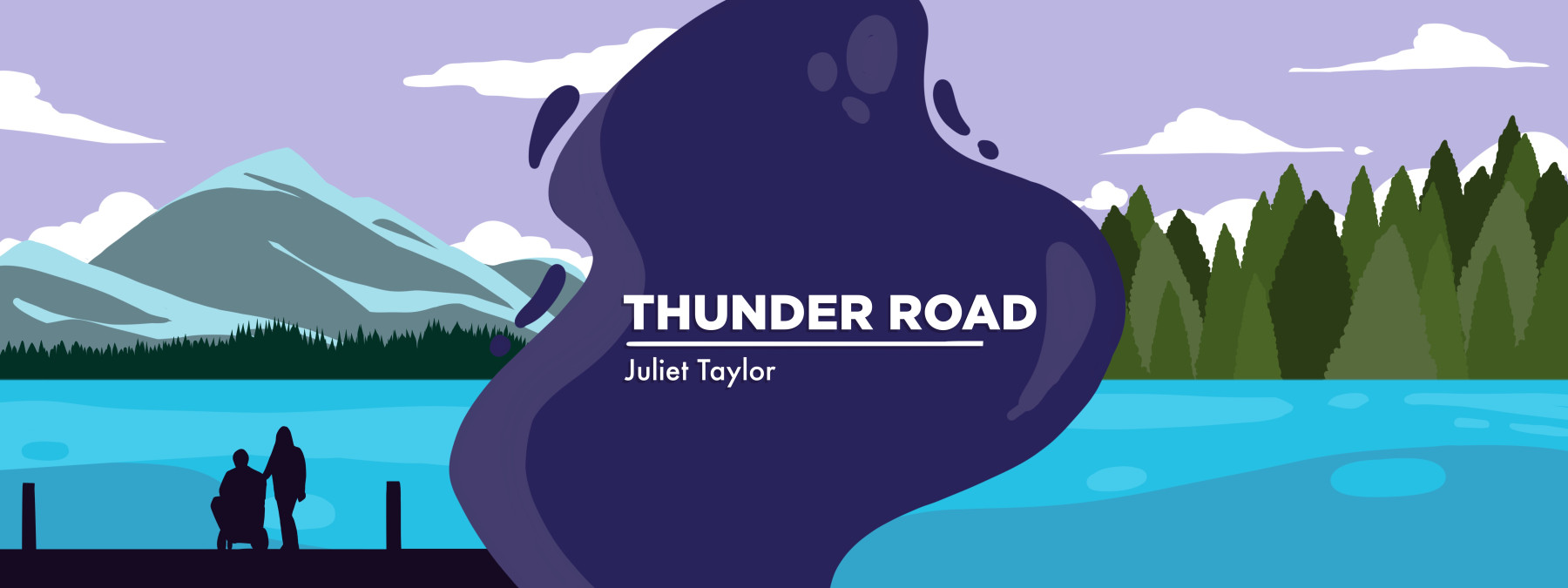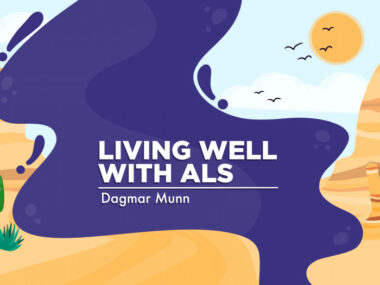Autumn stirs up vivid memories of my late husband’s ALS diagnosis
Seven years later, I still recall even minor details from our journey
Written by |

Autumn has a very specific feeling where I live on the Eastern Shore of Maryland. Right now, the daylight is getting shorter, the temperature is more brisk, and the lush greens of summer have given way to more muted hues as leaves get ready to change color and fall from their trees.
This natural evolution, as pretty as it may be, provides a backdrop of deep reflection for me. It’s been this way ever since my late husband, Jeff, was diagnosed with ALS during this season in 2018.
There is something visceral about the fall that subtly and consistently reminds me of the weeks and months surrounding Jeff’s diagnosis, which took place in October and was confirmed by a second opinion in November. I remember walking the pretty campus of the ALS clinic in Baltimore — a spot that reminded me so much of college — and thinking how odd it was to see such beauty juxtaposed with our uncertainty and pain. The vibrant leaves and cooler air could have brought comfort, but instead, they just reminded me of how the world can seem normal for so many while it’s collapsing for others.
I seem to feel the losses of ALS more acutely in the autumn, even though Jeff died in the spring. ALS can take a long time — years, in some cases — to diagnose, but for Jeff, the determination was relatively quick. Our initial neurology appointments — those in which we still held out hope that Jeff’s symptoms could indicate absolutely anything else — began in the summer, but as the air grew cooler and the days shorter, our own window of optimism narrowed as well. By the time the leaves had fallen from the trees, his ALS diagnosis was confirmed.
On nearly every day that season, I walked in the woods. Jeff was still healthy enough to be alone — he could still walk, speak, eat, and drive — and so I processed my early grief in a local park with winding, narrow trails beside the water. I walked alone or with my friend Liz, our dogs running ahead of us, the falling leaves kicking up around our feet. Even today, I can picture every detail.
Recalling moments large and small
I notice that many of us in the ALS community observe quiet anniversaries and remember vivid details related to our own, or our loved one’s, life with ALS. Unprompted, we recall diagnosis dates, surgery dates, clinic dates. We remember exactly where we were sitting when we heard the words “you have ALS” for the first time. I remember our doctors’ expressions as they shared weighty observations, studying their faces for any further clues that would help me make sense of Jeff’s faster-than-average progression, or his prognosis. I remember the chime of the elevator in the ALS clinic parking garage, and the feel of the chairs in the waiting room.
Because I’ve stayed active in the ALS community after Jeff’s death in 2020, I am connected with friends living with ALS and their loved ones. I hear similar stories of remembering both major and seemingly minor details — offhand comments that stick in our minds, or otherwise insignificant moments that instead become vignettes we replay frequently.
As Jeff’s caregiver, I had, and still have, dozens of those memories. After seven years, I still remember his daily ice cream order as we tried in vain to keep his weight up. I remember the color of his shoes as I laced them onto his weakening feet. I remember the moment in Somerset, Pennsylvania, when Jeff told me he had decided to stop driving for good.
While I dislike the word “journey” for a medical diagnosis, I have come to believe that for Jeff and me, it was an accurate description of our time with ALS, and so I use that word to describe it. All journeys have a beginning, whether we know it or not, and ours was at this time of year. I am feeling it viscerally during these shortening days, and this year, I am using these feelings to stay in touch with how important it is that we end this disease.
Sept. 12. Oct. 11. Nov. 7. All of these days, and others, marked milestones large and small in Jeff’s and my journey with ALS. Hopefully, one day soon, we as a community will add a new date: the last time anyone is diagnosed with this disease.
Note: ALS News Today is strictly a news and information website about the disease. It does not provide medical advice, diagnosis, or treatment. This content is not intended to be a substitute for professional medical advice, diagnosis, or treatment. Always seek the advice of your physician or other qualified health provider with any questions you may have regarding a medical condition. Never disregard professional medical advice or delay in seeking it because of something you have read on this website. The opinions expressed in this column are not those of ALS News Today or its parent company, Bionews, and are intended to spark discussion about issues pertaining to ALS.







Frances Kathleen Lopez-Bushnell
My husband, Paul Bushnell has had ALS for over 2 years and he died last week.
Jana Pearson
I am so very sorry. May God comfort you and give you strength.
I lost my mom in 2018 after only 11 mos diagnosed.
Christine
Autumn is my favorite season. I’ve lived in Colorado for almost 20 years . Day trips to see the colors is my favorite thing about living here. These trips started out with heading to the mountains and finding a colorful trail.
Now I sit in my wheelchair in my van and view the trees from afar.
I wonder if my husband will continue the tradition after I’m gone.
Shelby Pontiff
My son Ron was diagnosed in the fall of 2023. His twin brother and I are his caretakers. Our sympathy to Frances whose husband recently died after 2 years of ALS. Ron loves autumn and spends most of his days on our screened in porch. His brother puts out food for the animals and Ron loves watching them eat.
Jim Carducci
Juliet- I read your account of loosing you husband to ALS. My wife of 49 years was diagnosed with a very aggressive case affecting her frontal lobe of the brain. She was diagnosed in March 2025. At that time she was walking on her own, speaking understandably. Her early symptoms were related to her slow walking, slurred speech (sometimes) and mood swings. Since then, six months later she is in a wheelchair, cannot speak and has a feed tube. I am the sole caregiver. My question to you is how long were you able to keep Jeff in home? I fear someday I find her unresponsive. Could you share how long you were able to provide home care and what you finally did at the “end of your journey” I know it must be hard to talk about that but sometimes it helps to talk about it.
Thanks for sharing your story.
Jim
Holly
Juliet,
I live your exact journey only ours was shorter. My husband Harold lived less than a year from symptoms. He was diagnosed on Oct 5. A fay i will ne er forget. Its only been 4 months since he left us. I agree this disease need a treatment and cure ASAP!